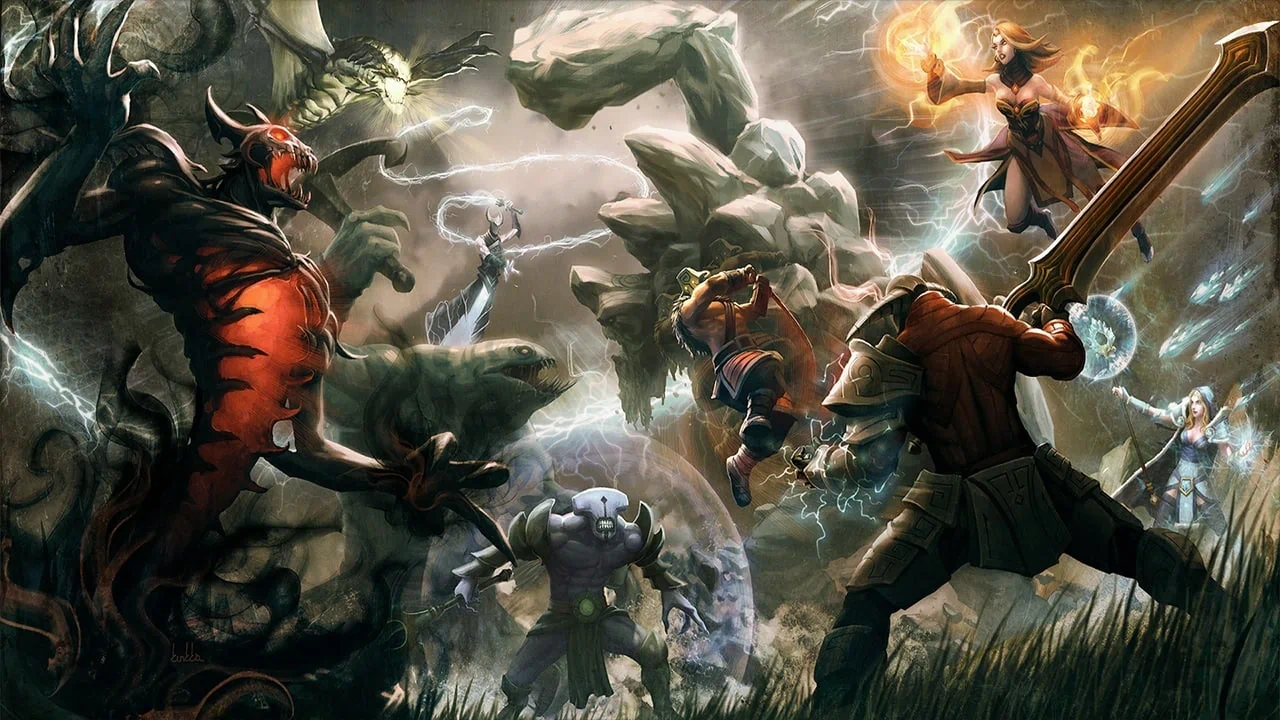Dota 2: The Evolution of Competitive Gaming and Esports
Introduction: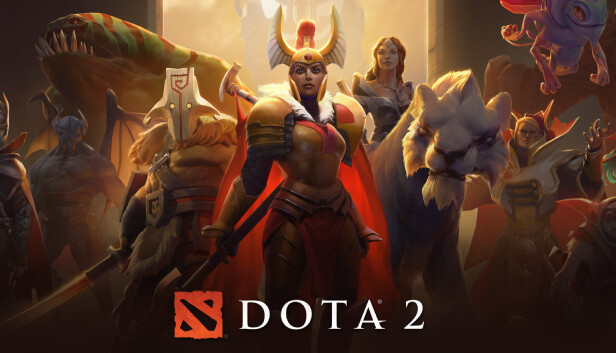
Dota 2, a multiplayer online battle arena (MOBA) game developed by Valve Corporation, stands as a titan in the realm of competitive gaming and esports. Since its release in 2013, Dota 2 has captured the hearts of millions of players worldwide with its complex gameplay, strategic depth, and thriving esports ecosystem. This article delves into the evolution of Dota 2, its impact on competitive gaming culture, and its role in shaping the global esports industry.
The Birth of a Phenomenon:
Dota 2 traces its roots back to the original Defense of the Ancients (DotA) mod for Warcraft III, created by a community of modders in the early 2000s. Building upon the foundation laid by DotA, Valve Corporation collaborated with the mod's creators to develop Dota 2, a standalone game that retained the core mechanics and gameplay of its predecessor while introducing new features, heroes, and visual enhancements.
The game's premise is simple yet compelling: two teams of five players each, known as Radiant and Dire, compete to destroy each other's Ancient, a heavily fortified structure located at opposite ends of the map. Players select from a roster of over 100 unique heroes, each with their own abilities and playstyles, and work together to outmaneuver, outwit, and outplay their opponents in fast-paced, action-packed battles.
Competitive Gaming Culture: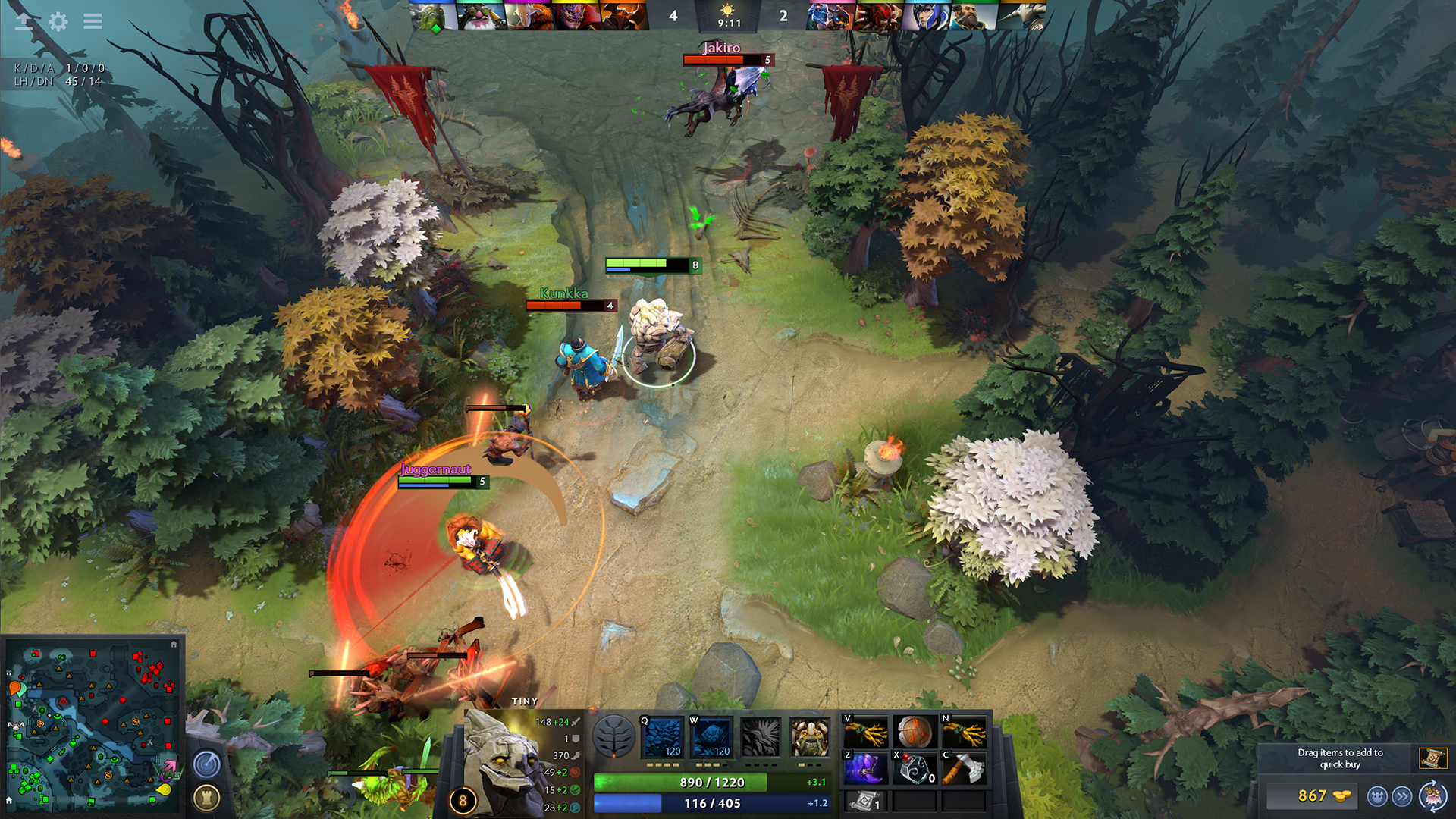
Dota 2's competitive scene, fueled by its passionate player base and dedicated community, has grown exponentially since its inception, evolving into a global phenomenon with tournaments, leagues, and championships attracting millions of viewers and offering millions of dollars in prize money.
The pinnacle of Dota 2 esports is The International, an annual tournament organized by Valve Corporation that brings together the world's best teams to compete for the Aegis of Champions and a share of the multi-million-dollar prize pool. The International's prestige, production value, and competitive gameplay have cemented its status as the premier event in the Dota 2 calendar, drawing massive crowds and breaking records for viewership and engagement.
Beyond The International, Dota 2 boasts a thriving esports ecosystem with regional leagues, grassroots tournaments, and online competitions catering to players of all skill levels and backgrounds. Professional players, known as "pros," compete full-time for top teams and organizations, honing their skills, strategies, and teamwork to achieve success on the global stage.
The Evolution of Gameplay: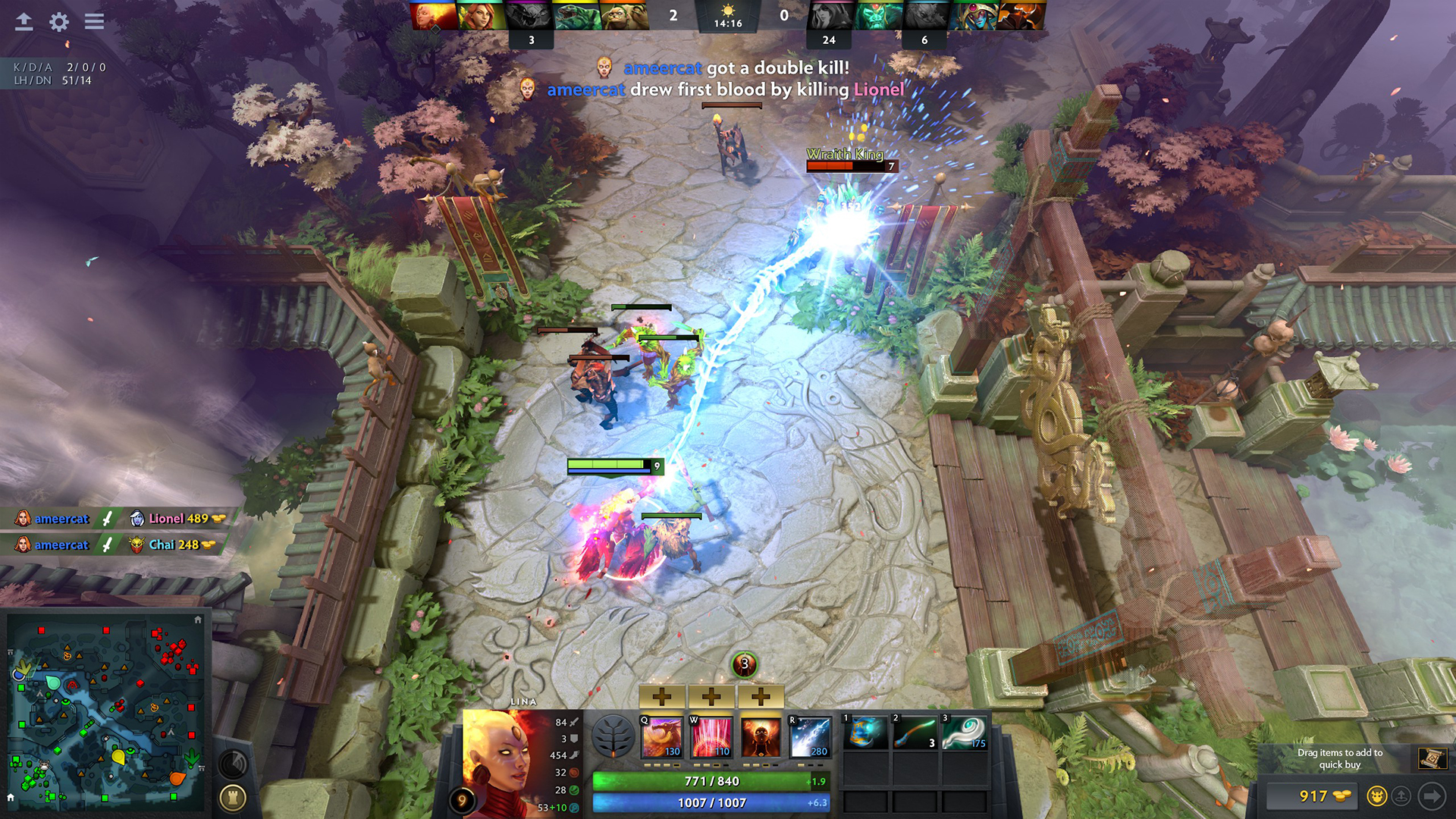
Dota 2's gameplay is characterized by its depth, complexity, and ever-evolving meta-game, which keep players engaged and challenged over thousands of hours of playtime. The game's balance of strategy, mechanics, and teamwork rewards skillful play and tactical decision-making, while its dynamic hero pool and regular updates ensure a constantly shifting landscape of possibilities and counterplays.
One of Dota 2's defining features is its emphasis on teamwork and communication, with players coordinating their actions, sharing information, and executing strategies to achieve victory. Each match is a unique and dynamic experience, with no two games playing out exactly the same, thanks to the game's randomized elements, such as spawn camps, neutral creeps, and rune spawns.
Moreover, Dota 2's community-driven development model, facilitated by Valve Corporation's Steam Workshop and Dota Workshop Tools, allows players to create and share custom game modes, maps, and cosmetic items, further enriching the game's content and fostering creativity and innovation within the community.
Dota 2 stands as a testament to the power of competitive gaming and esports to unite players, spectators, and fans from around the world in celebration of skill, strategy, and teamwork. As the game continues to evolve and grow, fueled by the passion and dedication of its community, it remains a shining example of the transformative potential of video games as a form of entertainment, competition, and cultural expression.
The Impact of Dota 2 on Esports: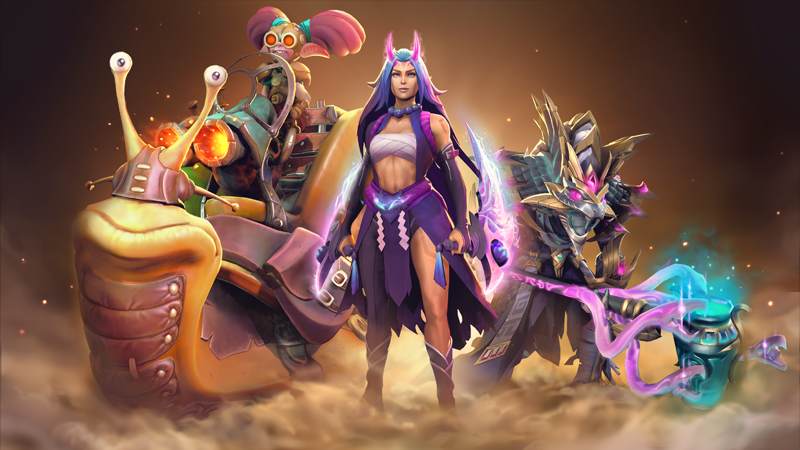
Dota 2's impact on the esports industry extends far beyond its own player base and community. As one of the most popular and lucrative esports titles, Dota 2 has played a pivotal role in legitimizing competitive gaming as a mainstream form of entertainment and establishing esports as a viable career path for professional players, coaches, commentators, and content creators.
The success of Dota 2 as an esport has inspired the creation of professional leagues, organizations, and infrastructure dedicated to supporting and promoting competitive gaming on a global scale. Major esports organizations, such as Team Liquid, Evil Geniuses, and OG, have invested heavily in Dota 2 teams, providing players with salaries, sponsorships, and resources to compete at the highest level.
Furthermore, Dota 2's influence can be seen in the growth and development of esports broadcasting and media, with dedicated platforms and channels, such as Twitch and YouTube Gaming, providing round-the-clock coverage of tournaments, matches, and events. Professional commentators and analysts, known as "casters," bring matches to life with their insightful commentary, analysis, and play-by-play narration, enhancing the viewing experience for fans and newcomers alike.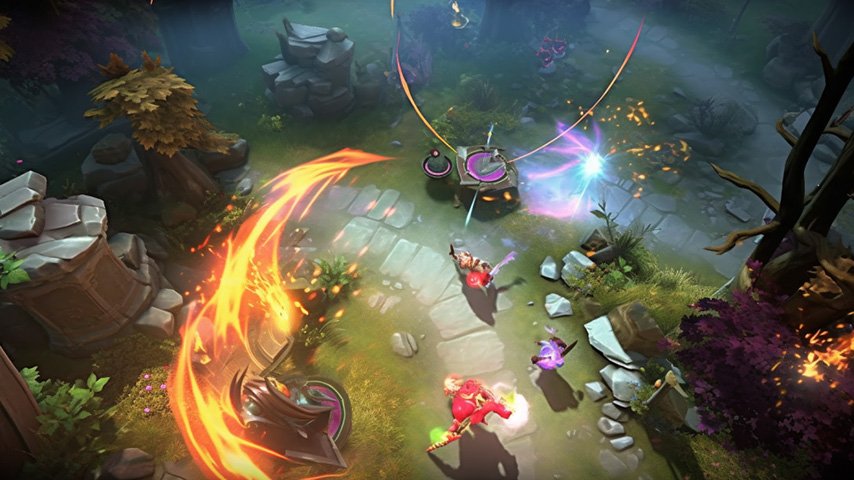 The popularity of Dota 2 as an esport has also spurred investment from traditional sports organizations, media companies, and sponsors seeking to capitalize on the growing esports market. Major brands, including Coca-Cola, Red Bull, and Mercedes-Benz, have partnered with Dota 2 tournaments and teams, sponsoring events, producing content, and engaging with fans in innovative ways.
The popularity of Dota 2 as an esport has also spurred investment from traditional sports organizations, media companies, and sponsors seeking to capitalize on the growing esports market. Major brands, including Coca-Cola, Red Bull, and Mercedes-Benz, have partnered with Dota 2 tournaments and teams, sponsoring events, producing content, and engaging with fans in innovative ways.
Looking Ahead: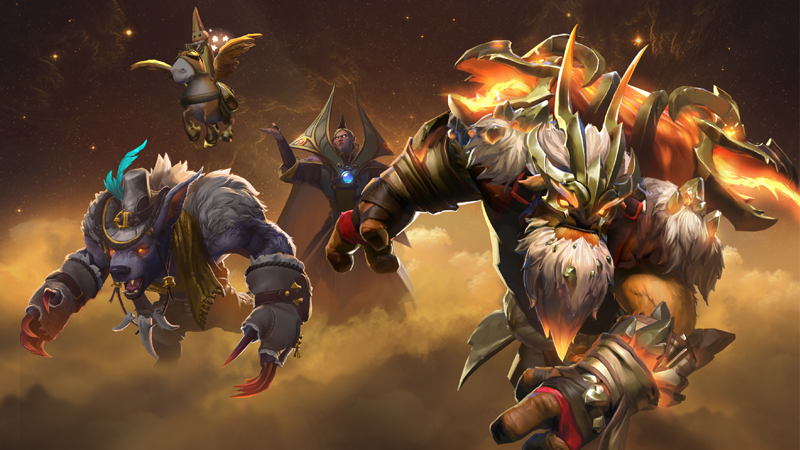
As Dota 2 enters its second decade, the future of the game and its esports scene remains bright, with new opportunities for growth, innovation, and expansion on the horizon. Valve Corporation continues to support the game with regular updates, patches, and balance changes, ensuring a healthy and competitive ecosystem for players and teams.
Moreover, the rise of mobile gaming and emerging markets presents new avenues for Dota 2's growth and accessibility, with potential opportunities for expansion into regions such as Southeast Asia, South America, and Africa. Valve Corporation's recent announcement of Dota: Dragon's Blood, an animated series based on the Dota 2 universe, further demonstrates the company's commitment to expanding the game's reach and appeal to a broader audience.
In conclusion, Dota 2 stands as a testament to the enduring power of video games and esports to inspire, entertain, and unite people from all walks of life. As the game continues to evolve and adapt to changing trends and technologies, it remains a beacon of innovation and excellence in the world of competitive gaming, setting the standard for future generations of esports titles and players to aspire to.